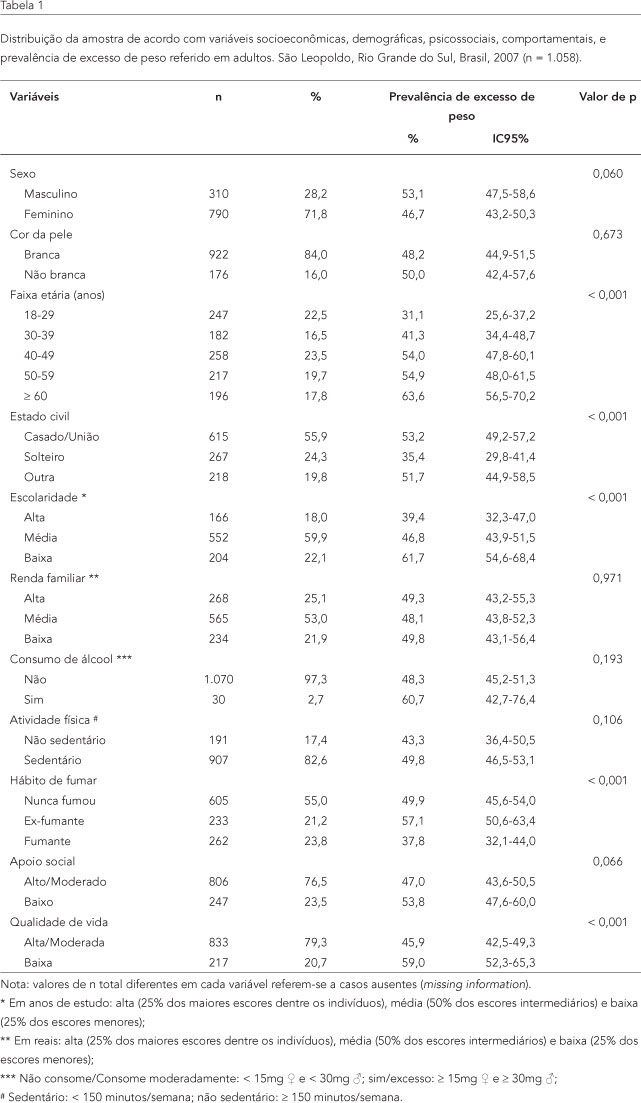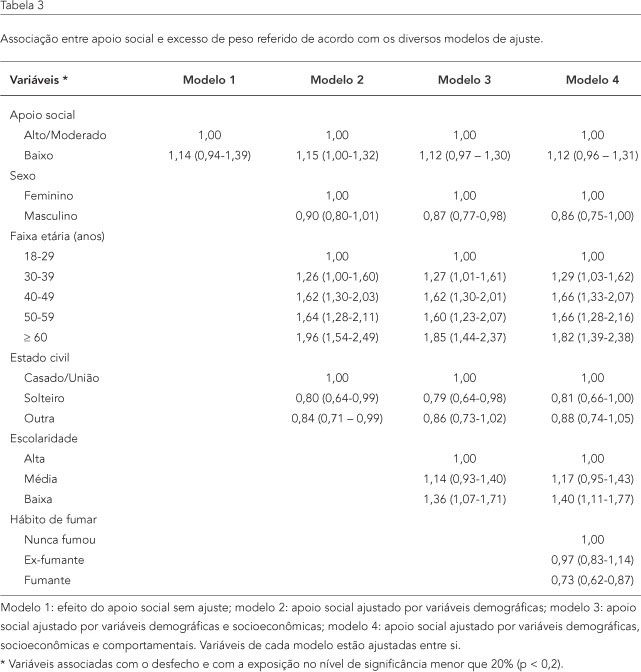The objective of this study was to investigate the association between psychosocial factors and self-reported overweight. A cross-sectional study was carried out with 1,100 adults in a Brazilian city. Structured interviews were conducted using a standard pre-tested questionnaire. Overweight was self-reported by participants and defined as body mass index (BMI) > 25kg/m². Psychosocial factors were quality of life (WHO-8: EUROHIS) and social support (Medical Outcomes Study). Crude and adjusted prevalence ratios (PR) were obtained by modified Poisson regression. After controlling for socio-demographic and behavioral variables, prevalence of overweight among individuals reporting low quality of life and low social support was 19% (PR = 1.19; 95%CI: 1.03-1.38) and 12% (PR = 1.12; 95%CI: 0.96-1.31), respectively, and was higher in those reporting high/moderate quality of life and high/moderate social support, respectively. The findings suggest that psychosocial factors can play a role in self-assessment of overweight.
Overweight; Social Support; Quality of Life; Adult



